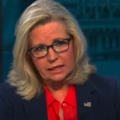In a move that signals a significant shift in the aerospace industry, NASA has decided to rely on SpaceX’s Crew Dragon to bring two astronauts, Butch Wilmore and Suni Williams, back to Earth. Originally, these astronauts were supposed to return on Boeing’s CST-100 Starliner after a week-long mission to the International Space Station (ISS). Instead, they’ve been stranded in space since June due to critical issues with the Starliner. This decision by NASA to sideline Boeing in favor of SpaceX highlights the growing concerns over how poorly Boeing is being managed—and why Elon Musk is quietly celebrating another victory.
Boeing’s Starliner: A History of Failure
The problems with Boeing’s Starliner are not new. The spacecraft was supposed to be a key player in NASA’s Commercial Crew Program, which aimed to foster competition between private companies to ferry astronauts to and from the ISS. However, the Starliner program has been plagued with delays, technical issues, and budget overruns, amounting to over $1.5 billion beyond the initial budget.
In this latest mission, the Starliner experienced helium leaks and thruster malfunctions shortly after docking with the ISS. Despite weeks of attempts to resolve these issues, NASA ultimately determined that it would be too risky to use the Starliner for the astronauts’ return trip. Instead, the spacecraft will make an uncrewed return to Earth while Wilmore and Williams wait for a SpaceX Crew Dragon mission to bring them home in February 2025.
SpaceX to the Rescue
While Boeing struggles, SpaceX continues to demonstrate why it’s the future of space travel. Since 2020, SpaceX’s Crew Dragon has been reliably ferrying astronauts to and from the ISS, proving itself to be a safer and more dependable option. NASA’s decision to use SpaceX for this crucial mission further cements SpaceX’s reputation as the leader in commercial spaceflight.
Elon Musk, the CEO of SpaceX, must be quietly enjoying this turn of events. As Boeing falters, SpaceX continues to rise, solidifying its position as the go-to provider for NASA’s most critical missions. This is more than just a win for SpaceX—it’s a clear sign that Boeing’s days as a leader in the aerospace industry might be numbered.
Hawley’s Grilling: A Symptom of Boeing’s Larger Issues
The problems at Boeing are not just technical; they’re also managerial. About two months ago, Senator Josh Hawley grilled Boeing CEO David Calhoun in a Senate hearing that exposed deep flaws in Boeing’s leadership. Hawley questioned Calhoun about his $32.8 million salary—a 45% increase from the previous year—despite Boeing being under multiple criminal investigations and struggling with ongoing safety and quality issues.
Hawley’s grilling highlighted how Boeing has been cutting corners, eliminating safety procedures, and retaliating against whistleblowers, all in the name of profit. The senator’s sharp criticism underscored the reality that Boeing’s leadership is more focused on shareholder value than on the safety and quality that made Boeing a trusted name in the first place.
This background is essential in understanding why NASA’s decision to go with SpaceX is so significant. It’s not just about technical failures; it’s about a company that has lost its way under poor leadership.
The Future of Boeing and SpaceX
NASA’s decision to rely on SpaceX instead of Boeing for this mission is a stark reminder of the consequences of poor management. Boeing, once the pride of American aerospace, is now playing second fiddle to SpaceX—a company that, under Elon Musk’s leadership, has consistently delivered on its promises.
The future for Boeing looks increasingly uncertain. If the company doesn’t address its internal issues and restore its focus on safety, quality, and innovation, it risks being permanently sidelined in favor of more reliable competitors like SpaceX.
For now, NASA’s decision is a clear win for SpaceX and a loud wake-up call for Boeing. The aerospace giant must either adapt or continue to watch as its competitors take the lead in one of the most critical industries in the world.
We’d love to hear your thoughts! Please comment below.
Jimmy
Having trouble? If your comment doesn’t post, submit another comment right after it that says: Jimmy, please approve my comment that didn’t post.














Thank God for SpaceX AND thank God for Elon Musk.
I agree but I expect the two “stranded” astronauts are having a “blast” up there as long as Mission Control is assigning them meaningful tasks to perform. I bet the current long-term occupants don’t mind the extra help they’re getting for on station tasks. I bet Butch and Suni will both have ear to ear grins when they get back and will be thankful they were able to stay on and help out! Oh that’s part of the reason of having two capsule providers. If one has a problem, there’s another one for backup. Supply ships can still get up there to supply food and consumables so the astronauts were not in any immediate danger. If there is a presumed problem on the recovery capsule, the engineers have the luxury of time to figure it out.
I would put more faith in Elon than in Boeing every time.
Boeing’s board of directors need to fire this guy, cut back these ridiculous salaries and put someone in charge that has been with the Co. With hands on experience for many years. They need to eliminate any “woke” crap and DEI, start with the best and brightest and start paying attention to every little detail and holding people accountable. It’s what makes any company successful. And it’s not rocket science.
Very well said! A refreshing opinion that is difficult to find these days.
Boeing is a great company ! F15 , Air Force One, B-52, and B-1 are all great successes. Recent failures are attributed to poor management. They are costing Boeing a lot.